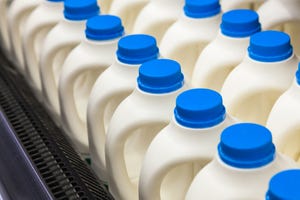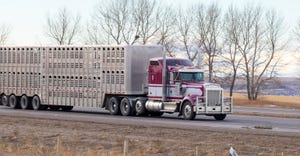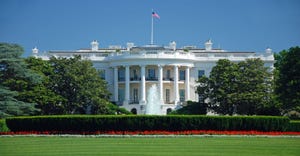R-CALF USA repeatedly has asked Senate Judiciary Committee to investigate unwarranted drop in cattle prices at end of 2015.

Senate Judiciary Committee chairman Chuck Grassley (R., Iowa) and ranking member Sen. Patrick Leahy (D., Vt.), along with Senate judiciary subcommittee on antitrust, competition policy and consumer rights chairman Mike Lee (R., Utah) and ranking member Sen. Amy Klobuchar (D., Minn.), sent a letter April 20 to Government Accountability Office (GAO) comptroller general Gene Dodaro requesting that the office complete an assessment of the sudden price drop of U.S. cattle prices in 2015.
“Earlier this year, R-CALF USA informed the Senate Judiciary Committee of a sudden 15.1% drop in fed cattle prices during the latter half of 2015,” the letter says, adding that, given "the unique and prominent role of the fed cattle market in U.S. agriculture and the economy generally, a robust analysis of the market forces associated with this price drop is warranted.”
In the letter, the senators explain that since the fed cattle price decline presents significant implications for consumers, producers and businesses, they would like an assessment of the cause of the 2015 price drop, including a review of the structure of the market and of any possible anticompetitive conduct.
R-CALF USA has sent a total of four requests to the Senate Judiciary Committee for an investigation into potential antitrust and anticompetitive conduct in the U.S. cattle and beef markets.
Market fundamentals in 2014 and the first half of 2015 sustained historically high cattle and beef prices. Those fundamentals included extremely tight cattle supplies and growing beef demand. Government and private economists alike predicted higher prices well beyond 2015, and there were no observable disruptions to the favorable market-sustaining fundamentals at any time during 2015. Yet, cattle prices collapsed.
“During the third and fourth quarters of 2015, cattle prices collapsed farther and faster than during any time in history, and the unprecedented volatility in the cattle futures market rendered it useless for price discovery purposes,” the group said in its first letter to the committee.
R-CALF USA contends that meat packers and certain traders in the cattle futures market in 2015 caused a severe anomaly in U.S. cattle markets. That anomaly, according to the group, caused an "unprecedented extraction of equity from the U.S. live cattle industry" and harmed consumers as well.
Included is documentation showing that independent cattle feeders lost more than $500 per head of cattle sold during the collapse, and consequently, "the very foundation of the U.S. cattle industry's feeding sector — its independent cattle feeders — was irreparably damaged," R-CALF USA insisted.
In a second follow-up letter to the committee, R-CALF USA cited a study that "demonstrates that ongoing purchasing practices of the largest meat packers unilaterally decrease prices cattle producers receive for fed cattle. ... The competitive allocation of revenues cattle producers should receive from the meat packers' sales of beef and beef products are offset in whole or in part by the meat packers' now predominant cattle purchasing method."
The study revealed that substantial price reductions are associated with increasing levels of captive supplies, including formula contracts in which cattle are committed to a packer without establishing a discoverable price.
About the Author(s)
You May Also Like





